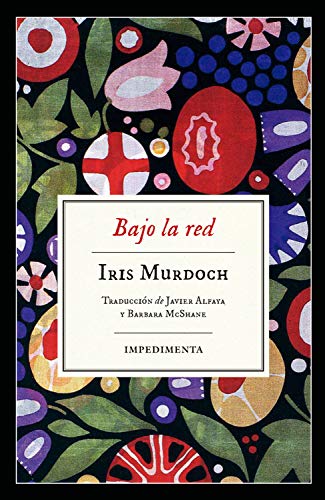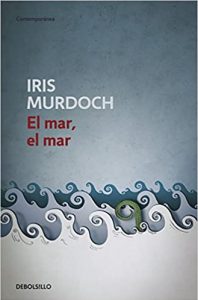One of the greatest virtues of the novel is that, in its evolution, it has opened up to a multitude of possibilities, currently presenting itself as a vast literary genre capable of harboring all kinds of intentions and motivations.
I bring up this idea from the notion of a Iris Murdock that reconciles in his own way a classical narrative formation with a final will between the existential (his devotion to Sartre This is attested by), the critical and a touch towards the popular that manages to offer a singular melting pot from the highest point of thought transferred to the common of characters who end up becoming great heroes of their particular tragicomedies.
In the end it is about the philosopher turned storyteller. The best possible way to transmit the perspective of the cultivated soul for anyone who seeks the foundations that make up a human morality moved in the stormy waters of human contradiction. Criticism, the deepest meditation and even humor are necessarily born from this understanding of the contradictory nature of living.
The ultimate goal of every philosopher is wisdom, the provision of manna with which to wander the desert with some chance of survival. Murdoch's books bring that everyday wisdom, that philosophy focused on the moral that does nothing but review what really makes the human being a fuller individual or a mere puppet.
But I insist that we are talking about a novelist. And as such, this Irish author ends up proposing a story so that it can be read in one way or another, under the imagination of each one, finally concluding a new life of the characters for a reader who can stay with the deepest or, as minimum, with the inertia of the protagonist on duty, that mirror in which to empathize to discover nuances of the world.
Top 3 Recommended Books by Iris Murdoch
Under the net
Iris Murdoch decided that her time to write a novel reached beyond 30 years, after gutting Sartre's thought in a profuse essay in detail about the character and the current that he started.
And as often happens on many other occasions in which the avant-garde bursts in, this novel that saw the light of day in 1954, was more valued many years later. The story centers on the writer Jake Donaghue, a guy evicted from life and far from his dreamed of success, a singular element on which a whole story revolves that uses each of its characters to delve into the historical political notions that they have made the world what it is.
Love is the existentialist sustenance of the plot, a play of light and shadow that places Jake, Anna and Hugo at the vertices of an impossible relationship. The knot is advanced around Jake's search for his identity as a writer, the one that pushes him between the ideal of the perfect book that can summarize the most overwhelming synthetic thought, and the tasty idea of public recognition as the only goal.
The silencer, Jake's book, becomes the background of the future of his characters, whose ways of facing destinies and challenges move between moral proposals and intellectual confusions, finally peering into the human limitations on which we try to build the most unstable bridges of our understanding and our way of communication.
The sea, the sea
The most awarded work of the Irish writer. Again we enter the mind of the creator with lowercase letters, of the human dedicated to the cause of fiction as a mirror on which to reflect our condition in the light of limited and Platonic understanding.
Charles Arrowby is known as one of the greatest playwrights in history after Shakespeare. From his high conception of his ego, Charles seems convinced that he can control his life and his time. An old love of Charles appears already in that adulthood of a retired creator of his work.
And he continues to think that all the past time does not matter much, that the love that has expired is still his. Mary was called that love and it will be she who focused the existence of the old playwright in the gray days that appear in the lucidity of his old age. Perhaps Charles does not love Mary so much as if he yearns for that time lived in a limbo of unfinished love, like a hole that could allow him to return to his youth.
He can do everything, he is the genius, the creator of stories. Mary ends up abducted by Charles ... only then is a quixotic certainty of madness looming in Charles with the weight of the greatest existential disappointment. Nothing is salvageable from the past, not even for him.
Bruno's dream
A completely unpredictable age arrives in which the past violently folds over one, even taking one's breath away. It can happen in your 90s or much earlier. Only at 90 years of Bruno, the withdrawal of reality is frankly inevitable.
Bruno's bed is his world, with that notion of complete impediment to perform a minimal action of life beyond thought. To think of a book in which a character lies immobile in bed is to remember Gregorio Samsa moments before succumbing to his literary metamorphosis.
In fact Bruno is almost already like a spider. He always loved these insects that as soon submit to the patience of the hours waiting for a victim as they jump into the fabric of his new web. Bruno is the spider in whose web we are discovering many new characters that passed through there, remaining clinging like a ball or violent breakers of the framework.
A network of human relationships like Bruno's ends up writing an intense story about what love, hate and any other emotions that may come to feel in a lifetime were.



